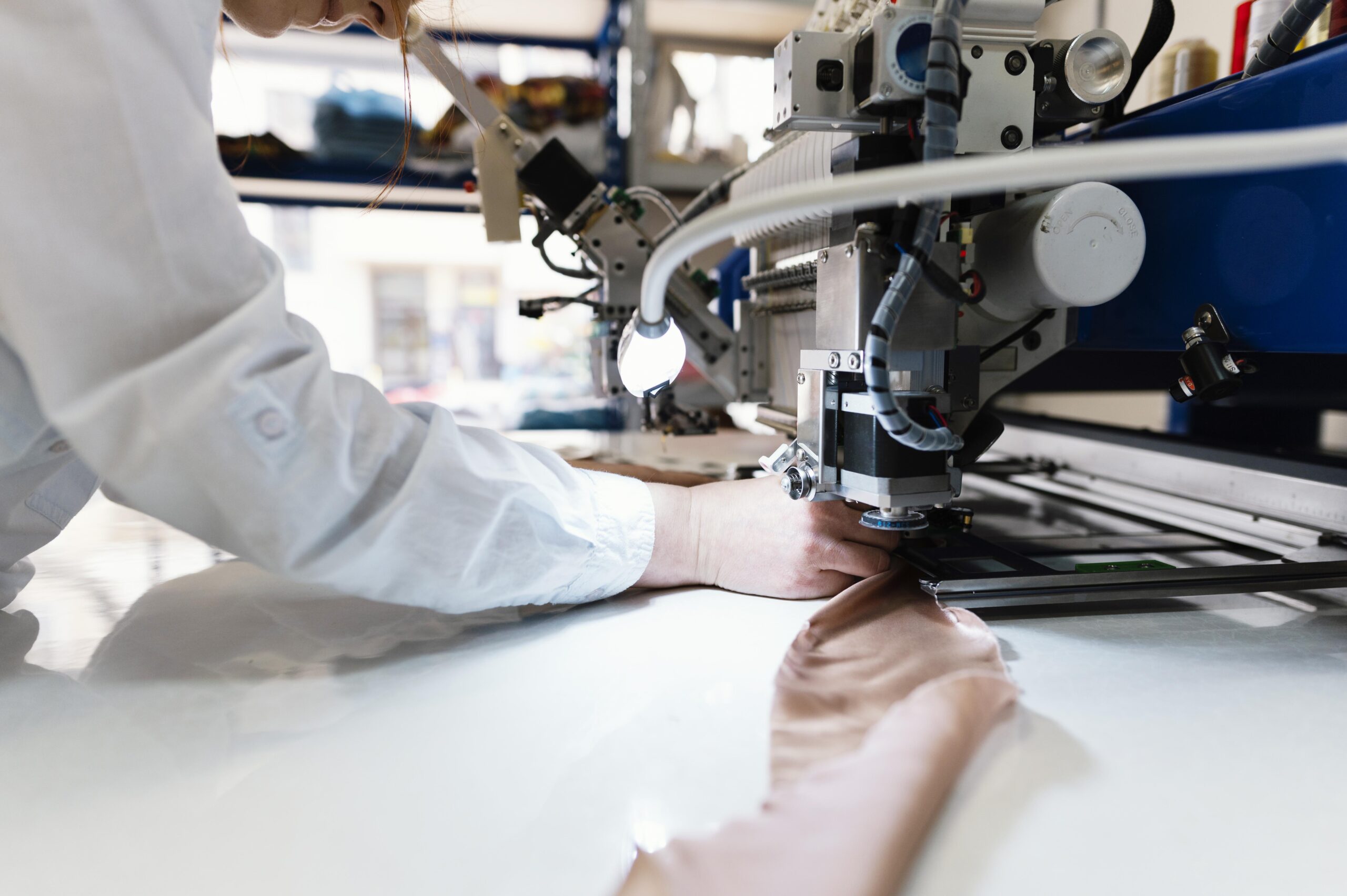The Global Clothes Manufacturing industry is evolving rapidly, driven by advancements in technology. Technology plays a pivotal role in modern cloth manufacturing, from the initial stages of design to the final production process. In this blog, we will explore the ways in which technology has revolutionized the industry and the impact it has had on clothing manufacturers worldwide, including those in the USA, Canada, France, Italy, Holland, Belgium, Poland, and the UK. We will delve into specific segments such as T-shirts & Tops, Hoodies & Sweatshirts, Jeans & Denim, Tracksuits & Twinsets, Coats & Jackets, Formal Shirts, Sports & Performance attire, Leather Jackets, Nightwear, and Gloves, Caps & Scarves manufacturers in the UK.
1. Design and Prototyping
Technology has transformed the design and prototyping process in cloth manufacturing. Clothing manufacturers now utilize computer-aided design (CAD) software, enabling designers to create intricate patterns, experiment with various colors and fabrics, and visualize garments in 3D before production. This streamlines the design process, reduces waste, and allows faster turnaround times.
2. Automated Cutting and Sewing
Automation has revolutionized the cutting and sewing stages of cloth manufacturing. Clothing manufacturers employ computer-controlled cutting machines that optimize fabric usage, minimizing waste. Advanced sewing machines equipped with programmable settings and robotic arms enhance precision and efficiency, resulting in faster production cycles and improved quality.
3. Smart Fabrics and Wearable Technology
The emergence of smart fabrics and wearable technology has opened up new avenues for innovation in cloth manufacturing. Clothing manufacturers are incorporating sensors, microprocessors, and conductive threads into garments, creating intelligent clothing that can monitor vital signs, track movement, and even charge electronic devices. These advancements have paved the way for the development of sports and performance wear with enhanced functionality.
4. Supply Chain Management and Tracking
Technology has greatly improved supply chain management in the clothing manufacturing industry. Manufacturers leverage data analytics and inventory management systems to optimize production schedules, reduce excess stock, and improve efficiency. Additionally, the use of blockchain technology enables transparent and traceable supply chains, ensuring ethical sourcing and sustainability.
5. Virtual and Augmented Reality
Virtual and augmented reality technologies transform how clothing manufacturers showcase and market their products. Virtual reality allows customers to try on garments virtually, enhancing the online shopping experience and reducing returns. Augmented reality enables manufacturers to create immersive product demonstrations and interactive experiences, bridging the gap between the physical and digital realms.
6. Sustainable Manufacturing Practices
Technology has also played a vital role in promoting sustainability in cloth manufacturing. Manufacturers employ advanced machinery that minimizes energy consumption and reduces waste. Additionally, digital platforms and tools enable efficient collaboration between designers, suppliers, and manufacturers, optimizing production processes and minimizing environmental impact.
Conclusion
Technology has revolutionized the clothing manufacturing industry, empowering manufacturers to create innovative and sustainable products. From the design and prototyping stages to supply chain management and customer experiences, technology has enhanced efficiency, reduced waste, and opened up new possibilities for creativity. Clothing manufacturers in the UK, Canada, France, Italy, Holland, Belgium, Poland, and the USA, including those specializing in T-shirts & Tops, Hoodies & Sweatshirts, Jeans & Denim, Tracksuits & Twinsets, Coats & Jackets, Formal Shirts, Sports & Performance, Leather Jackets, Nightwear, and Gloves, Caps & Scarves, have embraced these technological advancements to stay at the forefront of the industry. By harnessing the power of technology, the cloth manufacturing industry continues to evolve, catering to the changing demands of consumers while fostering sustainability and innovation.


